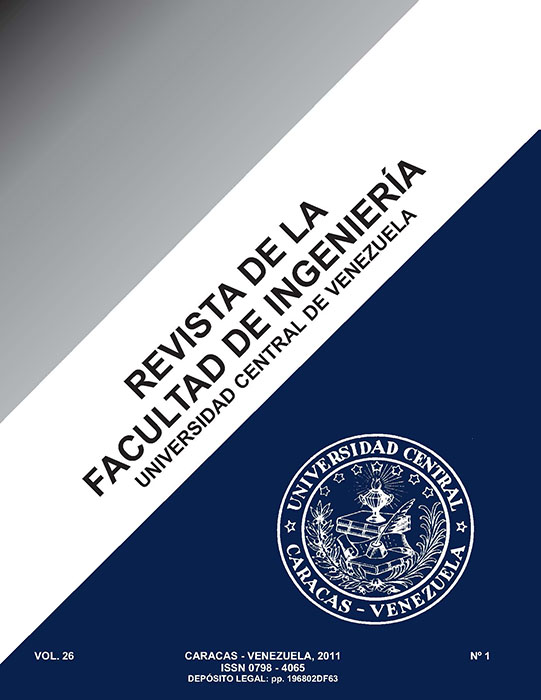DISEÑO DE UN MOLDE DE INYECCIÓN CON UN SISTEMA DE CAVIDADES INTERCAMBIABLES Y DESLIZANTES / Design of Injection Mould with a System of Interchangeable and Sliding Cavities
Palavras-chave:
Molde, Probetas, Diseño, Simulación, CAD/CAE.Resumo
El presente trabajo tuvo como objetivo principal diseñar un molde de inyección de probetas normalizadas, destinadas a ensayos mecánicos, utilizando un sistema novedoso de cavidades intercambiables y deslizantes. El diseño que se propone se basa en el uso de insertos o postizos, para el moldeo individualizado de diferentes probetas. Actualmente, existe la tendencia a diseñar moldes con postizos intercambiables que ofrecen facilidades para la obtención de probetas diversas, con la característica de fijarse al sistema de placas mediante tornillos. Al estar sujetos de esa forma, presentan dificultades importantes al momento de montarlos y desmontarlos, para un cambio rápido de cavidades de moldeo. Para ello se requiere de un gran esfuerzo manual e inversión de tiempo. Partiendo de esa experiencia y de las tendencias recientes en la industria a usar moldes con sistemas de cambio rápido, el presente trabajo plantea el diseño con un sistema de postizos intercambiables y deslizantes, bajo las especificaciones de las normas ASTM 6141 e ISO 294-1. Con tal fin, se han diseñado dos postizos, uno para la inyección de probetas tipo halterio y otro para barras rectangulares, las cuales pueden usarse en múltiples ensayos mecánicos (tracción, flexión e impacto). Para modelar y validar el molde diseñado y los postizos propuestos se usaron los programas Pro/ENGINEER y C-MOLD. Se formularon dos propuestas preliminares, considerando los dos movimientos posibles de los postizos en el sistema de placas de la máquina de inyección: vertical y horizontal. La evaluación comparativa de los pros y los contras de cada molde favoreció al sistema horizontal, debido a sus facilidades de manipulación y garantías para inmovilizar los postizos.
Palabras clave
: Molde, Probetas, Diseño, Simulación, CAD/CAE.
DESIGN OF INJECTION MOULD
WITH A SYSTEM OF INTERCHANGEABLE AND SLIDING CAVITIES
ABSTRACT
The main aim of this work was the design of an injection mould with the purpose of preparing test specimens, using a new system of interchangeable and sliding cavities. The proposed mould is able to hold inserts able to, manufacture the individualized test specimen by injection moulding. Nowadays, the trend toward the design of moulds with interchangeable cavities intended for easing the process of obtaining diverse plastic parts in the same mould, present the characteristic of fixing the system of plates by means of several screws. This system presents important drawback, at the moment of a rapid change of them, like the trend of having to make a great manual effort and to spend considerable amount of time. The present work presents the design of a mould with sliding and interchangeable cavities, under ASTM 6141 and ISO 294-1 norms. The design of two interchangeable and sliding cavities is developed: one with the purpose of producing tensile test specimen and the other for manufacturing rectangular bars (for flexion or impact tests). In order to shape and validate the designed mold and the proposed cavities, the Pro/ENGINEER and C-MOLD software were used. Two preliminary designs were formulated considering horizontal or vertical possible movements of the interchangeable cavities in the system of plates of the injection mould. The comparative evaluation of the advantages and disadvantages of every mould favoured the horizontal system, due to its operational facility associated with the guaranty of an easy manipulation and immobili
zation of cavities.
Keywords
: Mold, Test Specimen, Design, Simulations, CAD/CAE.



